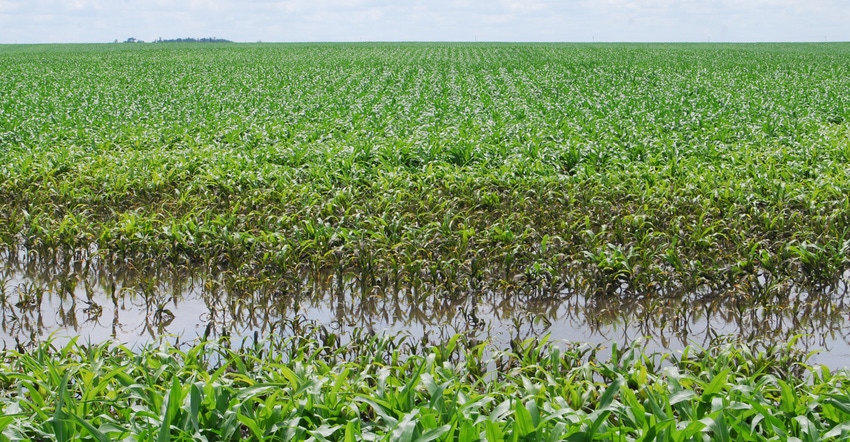July 24, 2018

By Don Hofstrand
Climate change will impact Midwest agriculture. Strategies focused on adapting to climate change, along with long-term climate change mitigation efforts, will be crucial to maintaining productivity.
Corn and soybean yields increased markedly over the last century due largely to new technologies and improved production practices. However, continued improvements in technologies and practices will be important as the agriculture community is challenged by a changing climate.
Temperature variability in the Midwest is expected to increase. This includes higher day-to-day and year-to-year variability. Both summer and winter nighttime temperatures have risen more than daytime temperatures over the last 30 years. This trend is likely to continue. Increases in nighttime temperature in the Midwest during the grain fill period for corn is beginning to negatively impact grain weight due to increased nighttime respiration of the corn plant.
Climate change affects crops, weeds
Most plant processes are accelerated under higher (except extreme) temperatures. Plants will grow faster and mature quicker. This change will apply to both crops and weeds. However, in the long-term, continued warming may increase temperature levels in excess of those needed for optimum plant growth.
Although it seems counterintuitive, summer daytime maximum temperatures in Iowa have gone down in the last 30 years. Extended periods of 100-plus-degree temps are rare, due partially to more precipitation and higher humidity levels. However, while there may be more rain in the future, periods between rain events will unmask the increased warming that will occur, leading to increased daytime temperatures. The average daytime maximum temperature of future five-day heat waves in the Midwest are projected to be 13 degrees higher than present by midcentury.
Annual precipitation up
Higher warm-season humidity leads to increased rainfall, extreme rain events, water-logged soils during planting season, soil erosion and runoff of chemicals to waterways. Rising humidity also leads to longer dew periods and higher moisture conditions that elevate costs of drying grain and increase populations of many pests and pathogens harmful to both growing plants and stored grain. Increased nighttime temperatures, coupled with humidity, causes stress to crops and livestock.
Iowa��’s annual average precipitation, including growing-season precipitation, has increased in recent decades. Precipitation is expected to increase by about 10% in the future. Most of the increase will come from wetter springs, with drier or little change in summers. However, summer precipitation will become more variable with a higher probability of intense rain events, leading to the potential for increased flooding and soil erosion.
Because plants use carbon dioxide for photosynthesis, higher atmospheric carbon dioxide concentrations can stimulate plant growth (both crops and weeds) and increase water-use efficiency. However, due to a different photosynthesis process, some crops like corn do not respond as readily to higher carbon dioxide levels.
Greater yield variability
Although higher carbon dioxide levels may initially raise yields, the negative impacts of climate change are expected to more than offset carbon fertilization benefits in the long run. Also, higher carbon dioxide levels have been shown to reduce the nutritional value of crops such as wheat and soybeans.
In addition to addressing climate change on their own operations, Midwest farmers must also respond to market signals from climate change on world agricultural production. Greater yield volatility at the farm level, combined with increased crop price volatility due to changing world conditions, will increase the need for financial risk management strategies.
Hofstrand, retired ISU Extension value-added agriculture specialist, can be reached at [email protected].
You May Also Like




